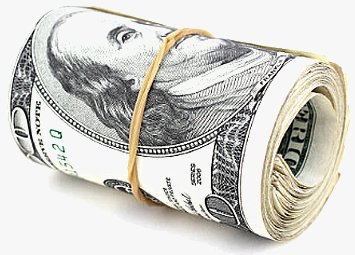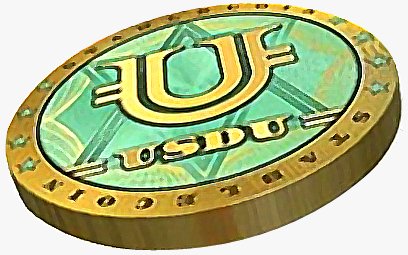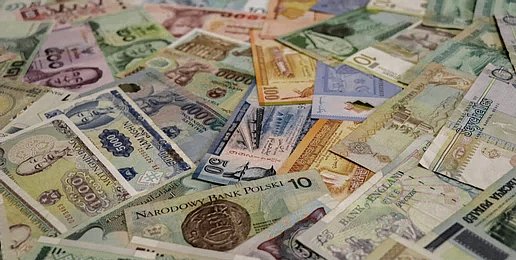Accredited InvestorsAltcoinAnatoli UnitskyAnti-Money Laundering (AML) In CryptoAPIArbitrageArtCoin TokenArticle DirectoryASICAuction Terminology GlossaryBasics of Stock Market InvestingBear MarketBest Crypto Payment Provider In the WorldBitcoinBlockchainBlockchain ConfirmationBlockchain Consensus MechanismBlockchain ForkBlockchain GlossaryBored Ape Yacht ClubBuild a Business That OutperformsBull MarketBuying SkyWay SharesByzantine Fault Tolerance (BFT) ExplainedCasascius CoinCentral Bank Digital Currency (CBDC)Centralized Crypto ExchangeCoinCoinsetCold WalletCollateralCommodity Futures Trading Commission (CFTC)Cross-Chain TechnologyCRUCrypto ExchangeCrypto GlossaryCrypto JokesCrypto Terms to KnowCrypto TickerCryptocurrencyCryptographyCryptojackingCryptounit BlockchainCryptounit GlossaryCryptounit ProgramdApp (Decentralized Application)Dead CoinDecentralized Exchange (DEX)Decentralized Finance (DeFi)Difference Between Bitcoin and EthereumDifferent Ways of Investing MoneyDigital CurrencyDistributed LedgerDo Your Own Research (DYOR)Dollar Cost Averaging (DCA)Dow Jones Industrial Average (DJIA)EncryptionERC-20ERC-721EthereumEvoScentFear Of Missing Out (FOMO)Fear, Uncertainty and Doubt (FUD)Fiat MoneyFNT Fintech CompanyGenesis BlockGlobal Unit PayGlossary of Banking TermsGlossary of Business TermsGlossary of Financial TermsHalvingHODLHot WalletHow Do I Start InvestingHow Rich is Satoshi Nakamoto?How to Create a BlockchainHow to Find Private InvestorsHow to Get Into FintechHow to Program Smart ContractsI Am Thrilled to Be a Part of This Global ProjectInitial Coin Offering (ICO)Initial Public Offering (IPO)Initial Token Offering (ITO)Innovation Basalt TechnologyInnovative Transportation TechnologiesInternational Bank Account Number (IBAN)Investing in Gold Mining StocksInvesting in Gold MiningJagerJoy of Missing Out (JOMO)Know Your Customer (KYC)LedgerLiquidity in CryptocurrencyMaker and Taker Fees in Crypto TradingMarket Capitalization (Market Cap)Meme CoinMetal Credit CardMetaMaskMillenials Now Have Access to Generational WealthMy Best Investment EverNew Digital EvolutionNFT GlossaryOff-Chain TransactionsOn-Chain TransactionsOpen Edition NFTPeer-to-Peer (P2P)Personal Loan GlossaryProbably the Best STO on the MarketProof of Stake (PoS)Real Estate Glossary of TermsReal Estate Investing GlossaryRebase TokenSecurities and Exchange Commission (SEC)Security Token ExchangesSecurity Token Offering (STO)Soulbound Decentralized Identities for Security TokensSoulbound ID Launch by Stobox Proves a SuccessSoulbound TokensStoboxStock Market GlossaryTestimonialsTether Platform and Token (USDT)UnitEx ExchangeUnitsky String TechnologiesUNTBUSDUValidatorWe Started Investing When We Were 25What are Blue Chip NFT?What are Blue Chip Stocks?What are Crypto Assets?What are Crypto Smart Contracts?What are CryptoPunks NFT?What are Digital Assets?What are Digital Collectibles?What are Gas Fees?What are Gas Wars?What are Hashmasks?What are Non Fungible Tokens?What are Non-Sufficient Funds (NSF)?What are Soulbound Tokens (SBT)?What are Stablecoins in Crypto?What are Transactions Per Second (TPS)?What are Utility NFTs?What are Utility Tokens?What Does Burning Crypto Mean?What Does Diamond Hands Mean?What Does Paper Hands Mean?What Does To The Moon Mean?What Does WAGMI Mean?What Happened to Satoshi Nakamoto?What is a 51% Attack?What is a Baby Boomer?What is a Backlink?What is a Banner?What is a Barcode?What is a Bid-Ask Spread in Crypto?What is a Block in Blockchain?What is a Block Reward?What is a Blockchain Address?What is a Blockchain Node?What is a Blockchain Oracle?What is a Blog?What is a Bond?What is a Bot?What is a Broker?What is a Business Accelerator?What is a Cash Cow?What is a Commercial Bank?What is a Commodity?What is a Con?What is a Credit?What is a Credit Limit?What is a Credit Rating?What is a Crypto Airdrop?What is a Crypto Bridge?What is a Crypto Scam?What is a Crypto Token?What is a Crypto Wallet?What is a Crypto Whale?What is a Crypto Winter?What is a Cryptocurrency Public Ledger?What is a Cryptocurrency Roadmap?What is a DAO?What is a Dark Pool?What is a Day Trader?What is a Dead Cat Bounce?What is a Default?What is a Derivative?What is a Digital Credit Card?What is a Fiscal Quarter?What is a Fungible Token?What is a Governance Token?What is a Grace Period?What is a Hard Fork?What is a Hot Wallet?What is a Hybrid Blockchain?What is a Hybrid PoW/PoS?What is a Joint Account?What is a Market Cap?What is a Merkle Tree in Blockchain?What is a Mining Farm?What is a Nonce? What is a PFP NFT?What is a POS System?What is a Prepaid Card?What is a Private Blockchain?What is a Private Key?What is a Public Blockchain?What is a Public Key?What is a Reserve Currency?What is a Ring Signature?What is a Routing Number?What is a Rug Pull in Crypto?What is a Safe Deposit Box?What is a Satoshi?What is a Security Token?What is a Seed Phrase?What is a Shitcoin?What is a Sidechain?What is a Soft Fork?What is a Spot Market?What is a State Bank?What is a SWIFT Code?What is a Tax Identification Number (TIN)?What is a Time Deposit?What is a Transaction Account?What is a Variable Interest Rate?What is a Virtual Assistant (VA)?What is a Virtual Card?What is a Virtual Currency?What is a Visa Card?What is a Whitelist in Crypto?What is a Whitepaper?What is Accounts Payable (AP)?What is AMA in Crypto?What is Amortization?What is an Accrual?What is an ACH Transfer?What is an Actuary?What is an Addendum?What is an Algorithm?What is an Angel Investor?What is an Annuity?What is an Asset?What is an ATM?What is an Atomic Swap?What is an Audit?What is an Avatar?What is an EIN?What is an Embargo?What is an Entrepreneur?What is an IDO (Initial Dex Offering)?What is an Interest Rate?What is an Internet cookie?What is an Investment Bank?What is an NFT Drop?What is an NFT Floor Price?What is an Ommer Block?What is an Orphan Block?What is an Outstanding Check?What is an Overdraft?What is Artificial Intelligence (AI)?What is B2B (Business-to-Business)?What is B2G (Business-to-Government)?What is Bartering?What is Bitcoin Dominance?What is Bitcoin Pizza Day?What is Blockchain Immutability?What is Blockchain Used For?What is BRICS?What is Business-to-Consumer (B2C)?What is C2C (Customer to Customer)?What is Capitalism?What is Catfishing?What is CFD Trading?What is Check Kiting?What is Cloud Mining?What is Communism?What is Content Marketing?What is Decentralization in Blockchain?What is DeFi in Crypto?What is Delisting?What is Depreciation?What is Digital Marketing?What is Diversification?What is Double Spending?What is Dumb Money?What is Dumping?What is Earnings Per Share (EPS)?What is Economics?What is Email Marketing?What is Equity?What is Etherscan?What is Fintech?What is Foreign currency?What is Forex?What is Fundamental Analysis (FA)?What is GameFi?What is Generative Art NFT?What is Gwei?What is Hard Currency?What is Hash Rate?What is Hashing in Blockchain?What is Inflation?What is Initial Game Offering (IGO)?What is Interest?What is Interest Income?What is Mainnet?What is Mastercard?What is Metaverse in Crypto?What is Mining in Cryptocurrency?What is Minting NFT?What is Mobile Banking?What is Money Laundering?What is NFT Alpha?What is NFT Metadata?What is NFT Rarity?What is NGMI Meaning?What is Nominal Interest Rate?What is Online Banking?What is Open-End Credit?What is OpenSea NFT Marketplace?What is Personal Identification Number (PIN)?What is Play-to-Earn?What is Polygon?What is Proof of Authority (PoA)?What is Proof of Work (PoW)?What is Public Key Cryptography?What is Pump and Dump?What is Quantum Computing?What is Refinancing?What is Retail Banking?What is Ripple?What is Sharding?What is Slippage in Crypto?What is Smart Money?What is Solvency?What is Soulbound ID?What is SSL?What is Staking in Cryptocurrency?What is Technical Analysis (TA)?What is Testnet?What is the Ask Price?What is the Better Business Bureau (BBB)?What is the Bid Price?What is the Dark Web?What is the InterPlanetary File System (IPFS)?What is the Gold Standard?What is the Lightning Network?What is the Prime Rate?What is the Sandbox?What is the Secondary Market?What is the World Bank?What is Tier 1 Capital?What is Tokenomics?What is TRC-20?What is Universal Banking?What is Unspent Transaction Output (UTXO)?What is Usury?What is Volatility in Crypto?What is Wash Trading?What is Web3?What is Whisper?What is XRP?What is Zero-Knowledge Proof (ZKP)?Who is Beeple?Who is Satoshi Nakamoto?Who is Vitalik Buterin?Why Tokenization is a Safe HavenWhy You Should Try Your Hand at Trading
What is a Cash Equivalent?
- Home
- Glossary of Banking Terms
- What is a Cash Equivalent?
Cash equivalents play a vital role as a health metric within the financial structure of an organization.

Analysts can utilize them to assess a company's financial health and determine whether investing in it is wise. This is because cash equivalents reflect the company's ability to meet its financial obligations within a short period, indicating its capacity to pay its bills.
What is a Cash Equivalent?
Cash equivalents refer to highly liquid investments that can be easily converted into cash within a short period. These investments include money market funds, certificates of deposit (CDs), and treasury bills. Cash equivalents are considered safe and low-risk investments since they are typically issued by governments, financial institutions, or large corporations with strong credit ratings.
In order for an investment to be considered a cash equivalent, it must have a high degree of liquidity, meaning it can be quickly bought or sold without impacting its market value. Additionally, it should have a maturity period of less than 90 days, which means that it can be converted to cash within a short time frame.
One of the main benefits of cash equivalents is their ease of access. They provide investors with a quick source of funds in the event of an emergency, unexpected expense, or short-term investment opportunity. Cash equivalents also provide stability and security to an investment portfolio, as they are less volatile than other investments such as stocks and bonds.
Cash equivalents are commonly used by businesses and individuals as a way to manage their cash flow. For example, companies may hold cash equivalents in order to cover their day-to-day operating expenses, pay off short-term debts, or invest in new opportunities as they arise. Individuals may hold cash equivalents in their emergency funds or use them to save for short-term goals, such as a down payment on a house or a vacation.
It's important to note that while cash equivalents are considered safe and low-risk investments, they do not offer the same potential for high returns as riskier investments such as cryptocurrencies, stocks or real estate. Additionally, inflation can erode the value of cash equivalents over time, meaning that investors may need to consider other investment options to keep up with inflation and achieve long-term financial goals.
Types of Cash Equivalents
Treasury bills, also known as T-bills, are short-term securities issued by the United States Treasury Department. These bills are a form of government debt and are commonly purchased by corporations as a low-risk investment. By buying T-bills, corporations effectively lend money to the government for a specified period of time.
Commercial papers, on the other hand, are unsecured short-term debt instruments that large corporations use to finance their short-term liabilities, such as payroll expenses.
Marketable securities are highly liquid financial assets that can be quickly converted into cash, including T-bills, commercial papers, stocks, bonds, and exchange-traded funds.
Finally, short-term government bonds are issued by governments to raise funds for infrastructure projects, and their rates are subject to factors such as political risk, inflation, and interest rate fluctuations.
Characteristics of Cash Equivalents
Cash equivalents are financial instruments that share similar features regardless of their type. These features include:
- Liquidity: Cash equivalents must be easily convertible to cash through liquid markets. Any investment that lacks liquidity cannot be considered a cash equivalent. For instance, a certificate of deposit that does not permit early redemption is not a cash equivalent. However, many CDs allow early redemption at a cost, such as a fee or loss of interest.
- Short-term investment: Cash equivalents must be quickly convertible to cash. Therefore, their investment period is often short. Cash equivalents are typically the most liquid current asset after cash.
- Low-risk/volatility: Cash equivalents are designed to be efficient investments for cash holdings with minimal risk. Although default risk and FDIC insurance are significant considerations, cash equivalents are typically low-risk, low-volatility investments.
- Unrestricted access: Investors should have unrestricted access to convert their cash equivalents to cash on demand. The primary objective of cash equivalents is to provide the same liquid benefits as cash. Investments with rigid holding terms or a lack of liquidity do not qualify as cash equivalents.
Advantages:
- Can earn a higher interest rate than cash held in savings accounts
- Highly liquid, easily convertible to cash
- May offer fixed rates of interest
- Generally considered to be a safe investment
Disadvantages:
- Interest rates may be lower compared to longer-term, less liquid investments
- Subject to the risk of default by the issuing entity
- May not be covered by federal insurance programs
Related Articles

What are Stablecoins in Crypto?
The primary and most common way is to back up each stablecoin in circulation with an equivalent value in fiat currency or cash equivalents.

Fiat Money
Fiat money is a type of currency issued by a government that is not backed by a tangible commodity such as gold or silver but by the government's authority.
- Home
- Glossary of Banking Terms
- What is a Cash Equivalent?